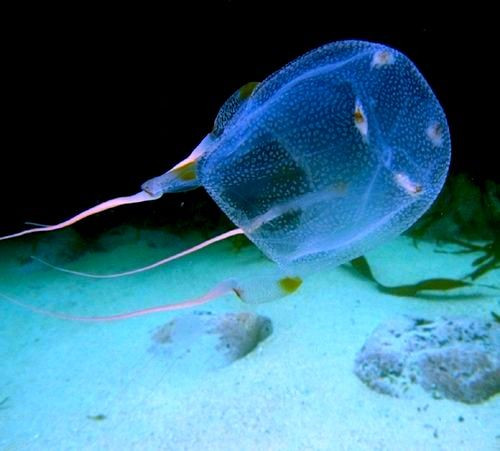Promising Cure For the World’s Deadliest Jellyfish Vemon Discovered

The box jellyfish is one of the world's most venomous animals. With just one sting, its venom can cause deadly cardiac arrest within minutes. However, a new study has revealed that a zinc-based compound may save the lives of victims who have been stung by its lethal venom.
Hawaiian scientists extracted venom from the jellyfish and tested it on human blood and on mice. They found that the deadly venom created holes in human red blood cells and made the cells leak large amounts of potassium, ultimately resulting in cardiac arrest and death.
Despite the jellyfishes' fearsome reputation, the findings published Dec. 12 in the journal PLOS ONE, revealed that a zinc-based compound saved the lives of mice injected with box-jellyfish venom. Researchers explained that the zinc gluconate compound seemed to work by preventing certain ions or charged particles that keep the heart beating from leaking out of blood vessels.
While researchers noted that research on animals often fails to provide similar results in humans, they believe that if additional studies confirm the benefits in larger animals, the compound could one day be used to save the lives of many people stung by the jellyfish.
"For over 60 years researchers have sought to understand the horrifying speed and potency of the venom of the Australian box jellyfish, arguably the most venomous animal in the world," lead researcher Angel Yanagihara from the University of Hawaii said in a statement.
"We have found that a previously disregarded hemolysin can cause an avalanche of reactions in cells. This includes an almost instantaneous, massive release of potassium that can cause acute cardiovascular collapse and death," she said.
Yanagihara and her team had treated the cells with a zinc compound. They found that the treatment inhibited the potassium releasing process, slowed the pore-forming process in cells and increased survival times in the mice treated with zinc gluconate. Yanagihara said that the new findings suggest that the venom's ability to increase potassium levels is what makes it so deadly and that immediate treatment with zinc could slow down the process and save many lives.



























